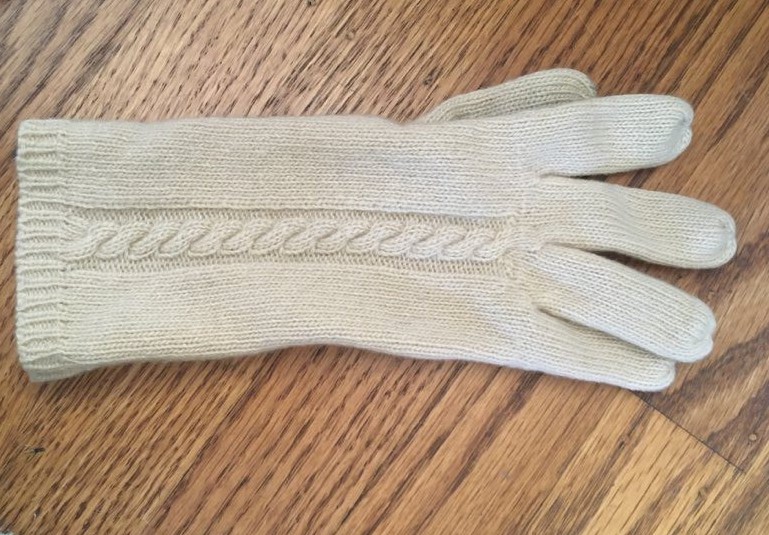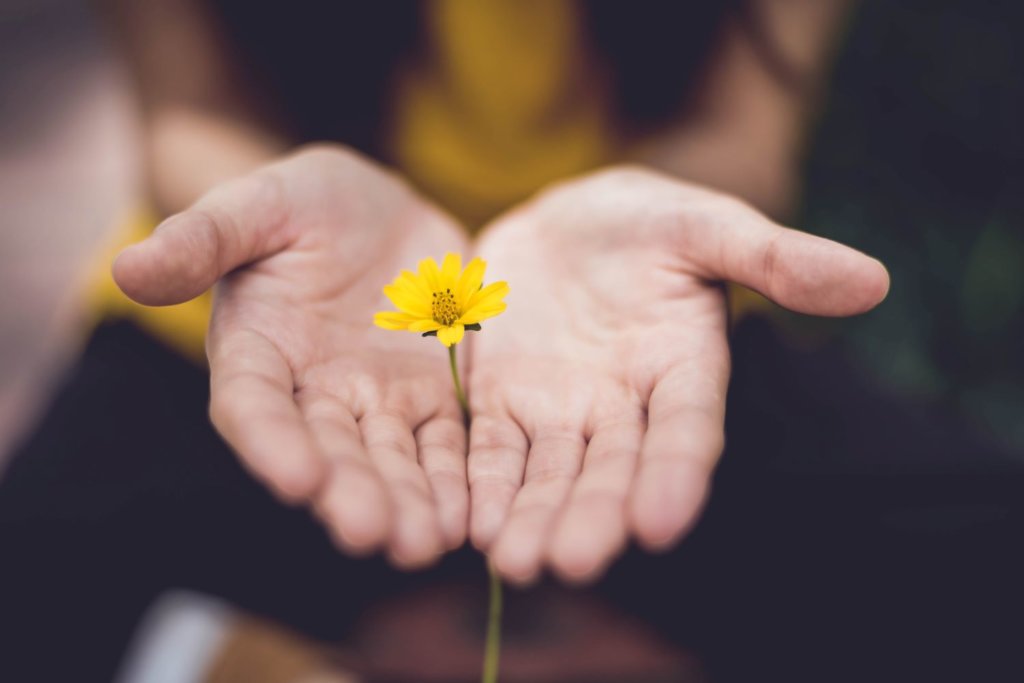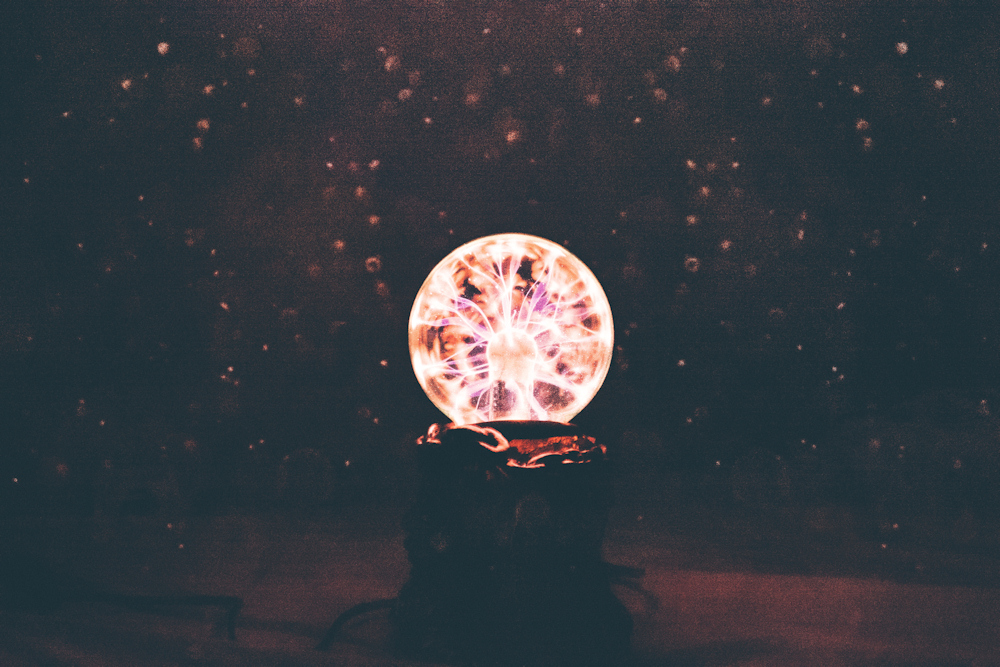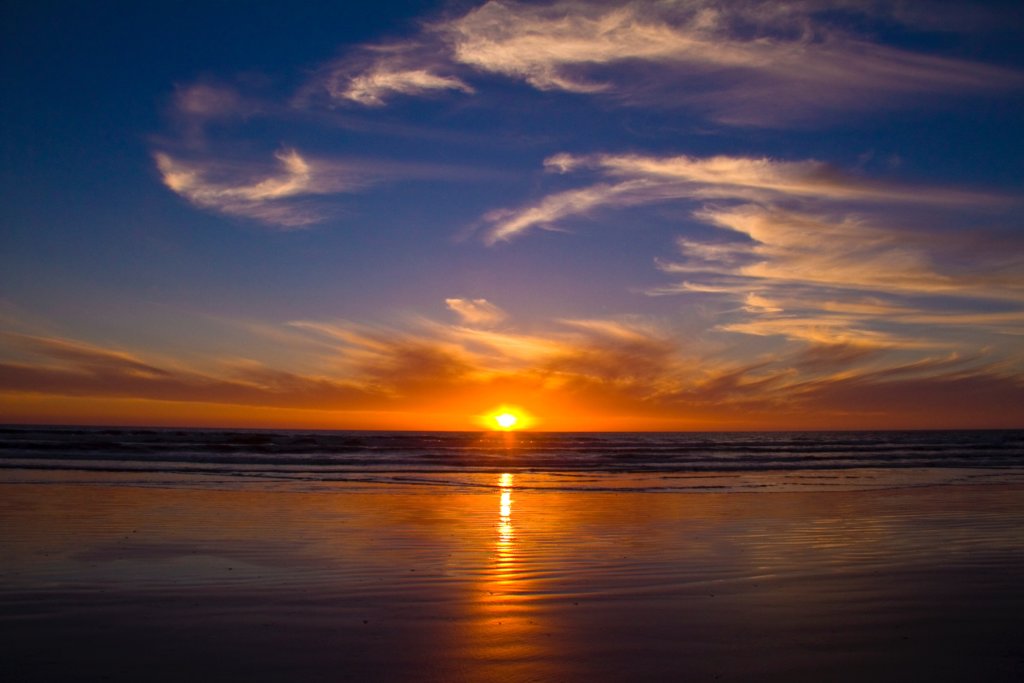Anger has been on my mind lately. Frankly it’s because I’m fuming. On Saturday, I came home to my apartment and found the workmen charged with replacing my bedroom window left my place a mess. Furniture was not returned to its rightful place, area rugs were askew, and pictures lay on the floor. Not only that, I was gifted with dust in every nook and cranny of my bedroom and random paint splatters on my floor. I literally spent an hour and a half vacuuming, scrubbing, washing, and putting things back where they belong. Minus the paint splatters. Those I couldn’t get rid of.
Suffice to say, I am NOT a happy camper. Quite the opposite in fact. As a deeply spiritual person, am I doing something “wrong” by feeling angry? With so many messages in the world about how anger is unnatural, destructive, something to avoid, etc. am I harming myself in the long run by feeling this way? In short, no.
First of all, anger shows up when there’s a boundary violation, as in the case of my apartment. Boundaries help us determine what we are and are not OK with, and if someone crosses the boundary line, that’s when anger often appears. From a nonviolent communication perspective, anger is a messenger notifying me about unmet needs. In this case, unmet needs for consideration and care.

Sometimes it’s good to “see red.” Photo by Alex Mihai C on Unsplash
The other thing I learned about anger recently is even in my own spiritual tradition anger isn’t a villain the way it’s often portrayed. Don’t get me wrong, my spiritual teacher talks at length about how anger can become a bad habit and even says, “The tendency of anger harms the body, stuns the mind, and creates obstacles for spiritual progress. Shiva, the great yogi, was well aware of this truth, and thus he clearly stated, Krodha eva mahán shatruh – ‘Anger is a great enemy.’”
So yeah, my teacher calls anger an enemy, BUT later on he also makes a distinction between sentient anger and static anger. He says if anger takes control of you, it’s static anger. But anger when it’s used for good, to stop the unholy activities of people in society for instance, is called sentient anger.
What does that mean? My takeaway is that anger cannot be an unconscious controller. The emotion is harmful if it’s unregulated and instead it requires training. A dear friend of mine uses this analogy: Anger can be likened to a guard dog. If it’s untrained, it may bite the mail carrier. Alternatively, the dog may wag its tail and let burglars stroll in and steal your stuff. Neither situation is how you want a guard dog to behave. The same is true for us humans and our internal guard dogs. We don’t want to get angry at the wrong times nor calm when it behooves us to be angry. When spiritual traditions advocate non-anger, they’re focused on static anger. But there is a place for anger, even in spirituality.
One more point: Until we’re all enlightened, omniscient beings, we have no idea what other people’s boundaries are. Anger, along with communication, are how we communicate that. Anger provides important information and that means for us spiritual people too.
I dream of a world where we recognize the value of anger. A world where we work on training anger so it doesn’t control us. A world where we understand anger has a rightful place and can in fact, even be something good.
Another world is not only possible, it’s probable.
A few weeks ago, I wrote that I feel sad regarding this pandemic. Now instead of sad, I’m angry. I hate this freaking pandemic. I hate that I haven’t been in the presence of another person without a mask in MONTHS. MONTHS. Yes, I’m going on walks with people, yes, I’m doing a lot of socializing virtually, but I just want to sit in the presence of another person and see their whole face. Is that too much to ask?
Frankly, I understand the appeal of the anti-masker, “plandemic” philosophy. It’s much more appealing to believe the pandemic is a completely made up thing that the government created in an effort to control humanity rather than the alternative. Because the alternative is this – not getting together with friends and family for the holidays, not seeing smiles on the faces of people you love, not touching each other. It SUCKS.

I purposely chose reddish paint swatches. Photo by Brett Jordan on Unsplash
So heck yeah I’d like to pretend none of this is real. Why am I sharing this? Because I ascribe to psychotherapist Michael Eigen’s philosophy. He wrote in his book Feeling Matters:
“As long as feelings are second-class citizens, people will be second-class citizens. Experience is an endangered species. An important function of psychotherapy is to make time for experiencing. Psychic taste buds really exist and rarely rest. They feed us each other, gauge states of being, states of spirit. We taste each other’s feelings and intentions.”
This is me offering up my state of being, my state of spirit. It’s not fun, it’s not pretty, but it’s real. And if anger remains unexpressed, it can turn into depression, which explains how I’ve felt this week watching holiday movies and realizing I will not have any of those experiences. I will not be at a holiday party. I will not be opening gifts with my siblings. I will not have a big indoor dinner with anyone. At first it depressed me but now I’m mad. I’m giving a big middle finger to this pandemic because it deserves it.
At the same time because life is complicated, I’m also grateful for the pandemic. This weekend I organized a Zoom call with the young people in my yoga and meditation group and we had attendees not only from the U.S., but also Mexico, Brazil, Portugal, Italy, Germany, and Denmark. I’m not sure that would have happened if we weren’t forced to socialize over the internet. Similarly, I’m seeing several of my college friends every week as we gather for a virtual Shabbat service. That also wouldn’t have happened without this pandemic.
Life is weird and complicated. And that means I can feel profoundly pissed off as well as profoundly grateful. Both can be true. I think being a fully functional adult means holding the paradox over and over again. It means allowing opposing things to occupy the same place. It means recognizing nuance. It means seeing shades of gray. And it also means creating space for our feelings.
I dream of a world where we express our emotions. A world where we feed our psychic taste buds. A world where we allow ourselves to feel happy and sad and angry and grateful and whatever else arises. Because ultimately we know life is nuanced.
Another world is not only possible, it’s probable.
This past week I canceled a trip to Washington, D.C. I had planned for later this month. Way back in April when I originally intended to go, I figured by the fall surely everything with COVID-19 would be sorted. That we’d shelter in place for a few months and then we’d be able to go about our business as usual.
As you know, that didn’t happen and it’s quite likely the rest of the year will continue in the same fashion it already has. Canceling my trip was somehow the watershed moment for me as I’ve realized how much this year has taken from all of us. I’ve cried so many times this week. I’ve grieved my inability to travel abroad as well as domestically. I’ve grieved how I can’t be closer than 6 feet to my friends without worry. I’ve grieved that plans and parties have all been scuppered. This year has been rough.
It’s not only COVID-19, it’s all of it. It’s Black Lives Matter, it’s climate change, it’s Donald Trump and the circus he’s ringleading. It’s fear of the future as well as fear of the present. I watch television shows and movies filmed before the pandemic and I feel wistful and envious of life before. When we took physical presence for granted. When we shook each other’s hands without a second thought. When we didn’t feel alarmed every time someone coughed. I’m sad. I’m really sad.
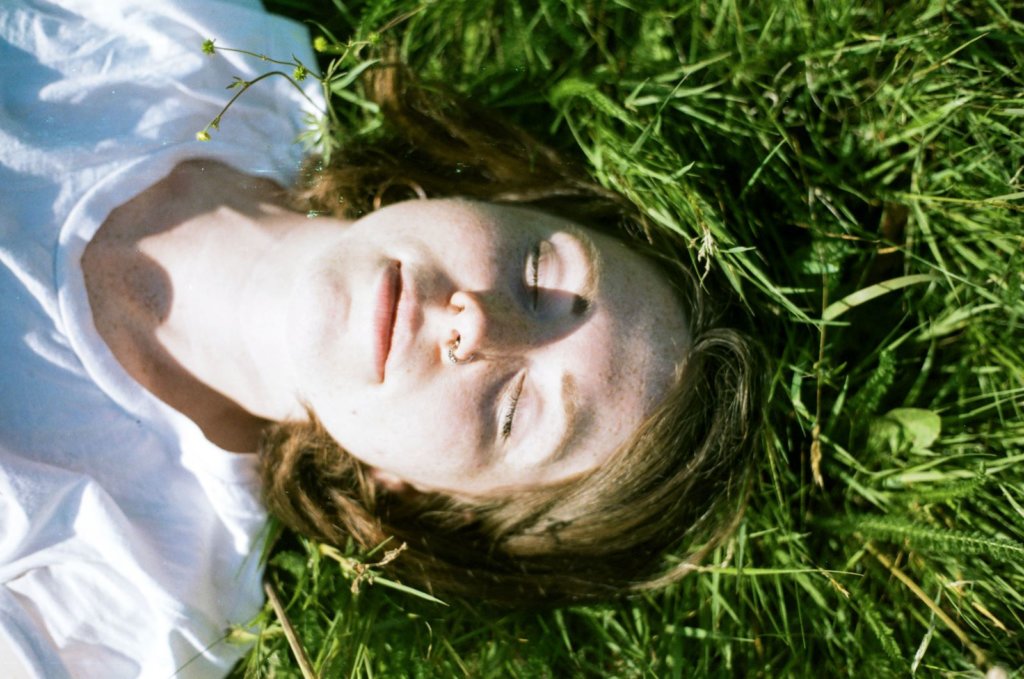
I miss sharing moments like these with someone else. Photo by Matt Heaton on Unsplash
I posted on Instagram that I wish I could pull a Rip Van Winkle and wake up when the world is different. It’s true, I do. And at the same time as often happens with grief, the world becomes sharper so I’m recognizing what I truly care about. For me, this year is clarifying how much I miss my family and want to spend more time with them. It’s also clear to me if I don’t leave my bubble every three to four months, if I don’t travel somewhere, I lose my freaking mind. And because I can’t actually do that in the way I’d like, I’m dreaming more. I’m using Pinterest for the first time ever creating a board of all the places I want to visit. I haven’t made a list like that since high school.
For other people, the pandemic is providing clarity in terms of their living situations. They’re moving apartments, houses, states, even countries. They’re recognizing they don’t actually like where they live and doing something about it. The same is true with relationships: People are either breaking up or they’re settling down. This pandemic is shaking us all up like a snow globe, which has its pros as well as cons.
Something else this period is highlighting for me is how precious time is. It’s the commodity we can’t have back. I don’t particularly miss restaurants or going to shows. I miss lying on the grass next to someone else and watching the clouds go by, calling out the different shapes they make. I miss reading a book on the couch while my feet are brushing against my sister’s.
As a friend of mine says, this year is refocusing our attention on simple pleasures. Instead of worrying so much about achieving, progressing, and doing, in the U.S. anyway we’re slowing down, reconnecting with family and friends, and remembering what truly matters. In case it wasn’t clear, what truly matters is you.
I dream of a world where we remember what’s most important. A world where we value our relationships and connections over material goods. A world where we cherish the moments we have with one another as we recognize how finite they truly are.
Another world is not only possible, it’s probable.
I feel a little discombobulated. On the one hand, it’s Rosh Hashanah, the Jewish New Year, and a time for celebrating. I am celebrating – I’m celebrating that the sky has cleared, I can see the sun again. I’m grateful for my friends, family, and community. I’m taken aback but also profoundly grateful that my business is thriving. There’s a lot to be grateful for.
On the other hand, I’m deeply troubled by what’s happening in the world: the rise in fascism, environmental catastrophes, and oh yeah, a global pandemic, which has not only killed numerous people, but has also led to unemployment and food insecurity. There’s a lot to be concerned about.
I’m reminded here this is always how life has been. Joy is frequently mixed with sorrow and we see that even in Rosh Hashanah services. There’s a part called the Mourner’s Kaddish where the entire congregation holds space for those who have lost loved ones during the past year. People call out the names of loved ones who have died so everyone can bear witness to their grief.
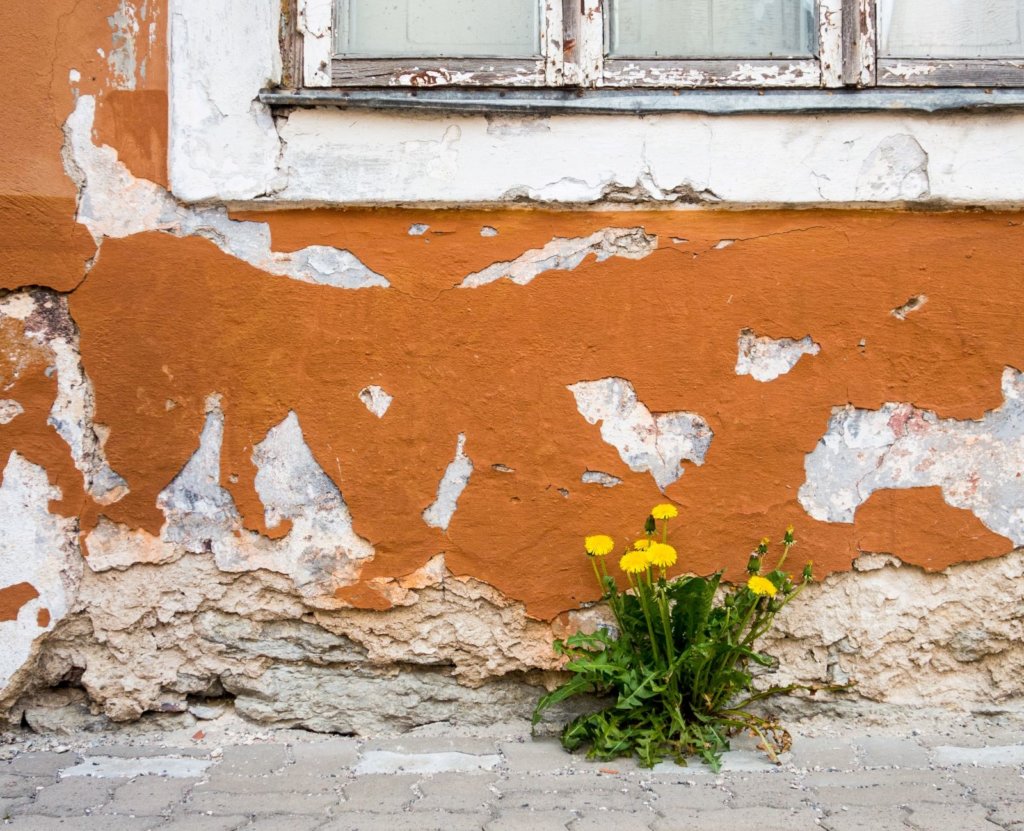
There can be beauty even amidst desolation. Photo by Nikola Johnny Mirkovic on Unsplash
As someone who is prone to black and white thinking, I presume my emotions will operate the same way: I’ll feel ecstatically joyful without any hint of sorrow. But again, that’s not true. This year as all of us are bombarded with one terrible piece of news after another, I continue to pursue joy and cling to it like a buoy in the sea.
I’m reminded here of a poem by Jack Gilbert titled “A Brief For The Defense” that seems especially relevant:
Sorrow everywhere. Slaughter everywhere. If babies
are not starving someplace, they are starving
somewhere else. With flies in their nostrils.
But we enjoy our lives because that’s what God wants.
Otherwise the mornings before summer dawn would not
be made so fine. The Bengal tiger would not
be fashioned so miraculously well. The poor women
at the fountain are laughing together between
the suffering they have known and the awfulness
in their future, smiling and laughing while somebody
in the village is very sick. There is laughter
every day in the terrible streets of Calcutta,
and the women laugh in the cages of Bombay.
If we deny our happiness, resist our satisfaction,
we lessen the importance of their deprivation.
We must risk delight. We can do without pleasure,
but not delight. Not enjoyment. We must have
the stubbornness to accept our gladness in the ruthless
furnace of this world. To make injustice the only
measure of our attention is to praise the Devil.
If the locomotive of the Lord runs us down,
we should give thanks that the end had magnitude.
We must admit there will be music despite everything.
We stand at the prow again of a small ship
anchored late at night in the tiny port
looking over to the sleeping island: the waterfront
is three shuttered cafés and one naked light burning.
To hear the faint sound of oars in the silence as a rowboat
comes slowly out and then goes back is truly worth
all the years of sorrow that are to come.
As we are all grappling with all the injustice in the world, all the destruction, all the grief, I encourage you to also have the stubbornness to accept your gladness. To find joy when and where you can because the world isn’t one way or another – it’s both, it’s all of it, it’s everything. I’m not advocating spiritual bypassing or whitewashing the horrors in the world. No. Instead I’m advocating feeling your feelings, recognizing it’s true life can be terrible, but also recognizing it’s true that there are babies laughing, flowers blooming, and lovers dancing. That life can also be joyful even in the most horrendous of circumstances. Life, and people, are complicated like that.
I dream of a world where we embrace delight. A world where we recognize joy can be mixed with sorrow. A world where we find the beauty in the world as a tonic to our hearts, reminding us there’s more to life than tragedy. A world where we celebrate as we grieve.
Another world is not only possible, it’s probable.
(First off, I want to say even though I’m not writing about Black Lives Matter this week doesn’t mean I no longer care or it’s not on my mind. It is. Being a human being means I care about many things all at the same time. In addition to everything going on in the world, things still happen in my personal world, and that’s what I’m writing about today.)
On Saturday, I stuffed cream, cashmere gloves into my jacket pocket in preparation for my trip to the grocery store. I like to wear gloves when I know I’ll be encountering high-touch surfaces because it saves me from washing my hands. About six minutes in to my walk to the store, I noticed the gloves had escaped my pocket. I stopped in my tracks and did an about face, retracing my steps while scouring the sidewalk and the street for my gloves. I found one and kept looking. I walked all the way back home and didn’t find my other glove.
Because I still needed groceries, I turned around again and kept my eyes trained on the ground looking for my glove. Didn’t find it. After leaving the grocery store, I once more swept my eyes left to right, constantly looking for my other glove. If you’re keeping track, that’s three times I searched for my glove to no avail.
When I came home, I took a picture of my glove and uploaded it to Google for a reverse image search, to see if I could purchase the gloves again. Nope. Then I messaged three different people on Etsy to ask if they could make me a match. If that wasn’t enough, later in the evening, just for kicks, I searched the street two more times and came up empty. If it wasn’t obvious, I have trouble letting go. Not only of objects, but also of people and situations. Goodbyes are hard for me.
I try really hard to fix things so I won’t need to feel sad. In this case, if I found my other glove I wouldn’t feel sad or upset because the problem would be solved. I think it’s safe to say my other glove is gone. Tears are pricking my eyes even typing that. I don’t want it to be true but reality is like that. In real life, not everything can be fixed or solved. Even buying a new pair of gloves won’t truly replace the one I lost. A new pair won’t make up for what’s missing. I’m allowed to feel sad about that.
My therapist tells me frequently emotions are like tools and when they show up, use them. When sadness shows up it’s because of a loss. I’ve lost many things in my life and I don’t think I’ve properly grieved them all. I was too busy metaphorically combing the street trying to solve the problem to cry. But here’s the thing about grief – it doesn’t go anywhere. It stays in the body. It may express itself as lung trouble, or pain in the back, or weight gain, or something else, but grief sticks around until it’s felt.
This isn’t a profound post or fiery one or philosophical one. It’s a human one. I’m a human being and when I lose something, I feel sad whether I let myself cry about it or not. What I’m learning is life is easier when I let myself grieve. How much time and trouble could I have saved on Saturday if I had given in to the emotion I felt instead of fighting it? I don’t regret looking for my glove, but now that I know it’s not coming back, it’s time to grieve. Not only for my glove, but for other things too.
I dream of a world where we let ourselves cry when we lose something or someone. A world where we recognize emotions are not meant to be fixed but rather felt. A world where we let ourselves feel our feelings when they come up. A world where we embrace our humanness.
Another world is not only possible, it’s probable.
A month or two ago I heard on a podcast I listen to that the wound is also the gift. It’s a phrase that’s stuck with me because it rang true, but I couldn’t quite grapple how. This week provided me clarity on the subject.
I’ve always been a sensitive person but growing up I didn’t know how to handle my emotions. I tried to shut them down or numb out in a variety of ways. Those two strategies run rampant in our society and it’s why we see such high rates of addiction and insensitivity. Emotions can be scary for people, especially when the messages a person receives are, “Don’t be sad, don’t be scared, don’t be angry.”
Speaking from experience, it’s impossible for me not to feel sad, scared, or angry, and trying other means to NOT feel my feelings only harmed me. These days I’m taking a new tactic which is to feel my feelings and use them as information to guide me in my life. But because I’ve been on both sides it means I can use my wound and make it a gift. It means that now I live and breathe empathy. In fact, I taught an empathy workshop at a retreat recently. I never thought I’d be a person who is helping other people process their emotions when I was so unskilled, but now, people regularly call me when they’re upset or scared or sad. My emotional wound turned me into someone with high emotional intelligence, and my gift is now I understand how to set and maintain healthy boundaries so I’m not overwhelmed by emotions anymore. Not always, not in every circumstance.
I still try to numb out sometimes, or push my emotions away, but the frequency is less and the duration is shorter. My own experience is helping others. Do I want to be a therapist? Absolutely not because I’m too introverted for that, but I’d love to ghostwrite for therapists. And even without parlaying emotional hygiene into a career, I’m helping myself and my community through modeling and acting as a resource. I’ve come to understand the only way out of anything is through, and that means my feelings too.
My spiritual teacher talks about this as well. He says regarding the innate propensities people have, for instance shyness or cruelty, “You shouldn’t check the flow. You may check the flow to check the flood, but you are to divert that water through different canals. Here also you are to check the flow of your baser propensities and divert it unto that singular propensity, toward the Supreme Self … The mind is moving toward so many unrighteous activities. Withdraw those activities and guide it toward the singular righteous Entity.”
You can’t direct the flow of something if you avoid it altogether. And you might find the things that hurt you become assets later on when helping others. We all have wounds and sometimes those wounds become gifts that foster connection, love, and support. You never know, but it’s an interesting question to ponder.
I dream of a world where we recognize sometimes the things that wounded us also become our greatest gifts. A world where we take what we’ve learned and use it to help others. A world where we come to terms with our past hurts and use them to propel us forward.
Another world is not only possible, it’s probable.
Something happened to me this past week that threw me for a loop. I spiraled into a lot of fear and insecurity, projecting the worst possible outcome. Despite having a blog called “Another World is Probable,” for my own life, my first impulse is doom and gloom. When I’m in this emotional place, I lose all rational faculties and feel utterly alone, despite all evidence to the contrary.
I had an experience on Saturday that pulled me out of that hole and helped me change my perspective. My friend Rachel Kaplan launched her podcast, “The Healing Feeling Sh*t Show.” I highly recommend checking it out, by the way. It’s all about emotional potty training for adults. I attended the launch party by myself, anticipating I’d see familiar faces in the crowd, but no one I’d spent much time with. While hobnobbing, I spotted not one, but three people I hadn’t seen in years. It felt like a gift, a synchronistic delight, to anticipate aloneness but instead have the opposite experience.
I realize some of you will scratch your heads because after all, don’t Rachel and I have friends in common and therefore wouldn’t it make sense I would see them at her launch party? Yes, yes it would. But wait! There’s more. I ordered a Lyft home and the driver was also a friend of mine! That’s literally never happened to me before.
I bring this up because all of these synchronicities reminded me life is magical, that there is an intelligence at play in the universe. It reminded me I may think I’m alone and under-resourced, but in actuality I have a wealth of care and support at my fingertips. There is an inherent love for me that I cannot fathom or anticipate.
Despite the numerous magical experiences in my life, I usually think they’re a fluke. I think the synchronicity is a one-off, something never to be repeated. My experience from Saturday night illustrated to me how wrong that is. Magic, synchronicity, and care is more the norm than it is the exception. I regularly have these experiences. Not so regular I can predict their occurrence, but regular nonetheless.
I’m not alone in this. I know many people experience synchronicity and what could be called a coincidence. For me, today, I’m taking it as evidence of a loving higher power. An entity that acts benevolently, that orchestrates things in such a way that I’m taken care of, and also shows me from time to time that I’m not alone, that there are greater forces at work in the world that I’m often unaware of.
My spiritual tradition corroborates this. Over and over again my spiritual teacher says the divine loves us more than we can imagine. Loves us so purely, completely, and unconditionally our human brains are unable to comprehend the depth and breadth of love. But it’s up to us to recognize it.
I dream of a world where we realize we are not alone. A world where we recognize there is a greater, benevolent force at play in our lives. A world where we remember we are loved deeply and completely and that means we’ll experience magic from time to time.
Another world is not only possible, it’s probable.
This topic has come up in at least three conversations with people in the last week so I’m taking it to mean it would be a good topic to blog about. It’s a bit of a departure from what I normally write, but that happens sometimes.
Approximately 10 years ago I learned of EFT, also known as emotional freedom technique, or tapping. The process combines the use of acupressure with psychology. Tapping with the fingertips on specific meridian endpoints of the body helps to calm the nervous system, rewire the brain, and restore the body’s balance of energy. I found the practice to be sort of helpful. I felt better after tapping, but nothing really changed for me. I still carried around a lot of fear, my health didn’t improve, my finances didn’t change, I remained single. It wasn’t the magic pill I was hoping for. So I stopped tapping.
More than a month ago, I heard an interview with Jessica Ortner, one of the big names in tapping, and decided to try again. I picked up the book by her brother Nick Ortner, called The Tapping Solution, and read his section on pain. He asked the question, “Is there an emotion associated with the pain?” As someone who is extremely psychosomatic, this question is a game-changer for me. At the time, I had painful menstrual cramps – that didn’t abate with painkillers or a heating pad or any of the things I usually try. I asked myself, “Is there an emotion associated with this pain?” and the answer was “sadness.” I started tapping all of the acupressure points while I said out loud, “All this sadness in my uterus, all this sadness in my uterus. I’m releasing it and letting it go now.” Tears streaked down my cheeks as I cried over something that happened to me a long time ago, that I thought I was over.
I kept tapping until I felt better, and wouldn’t you know it, no more menstrual pain. I tried it for other things too. My feet swelled up due to poison oak and the healing process seemed to stagnate. I asked myself the question, “Is there an emotion associated with the swelling in my feet?” and the answer was “anger.” So I tapped through that too, and then the next morning my feet returned to normal size. I think most of us are aware of the mind-body connection, but I was surprised at how a specific body part can store an emotion, and how that emotion can linger in place for years.
I share all this because perhaps the recurring back pain or rash that won’t go away, or whatever, is your body telling you something. Maybe there’s an emotion there asking to be felt and the pain or symptom won’t go away until it’s been addressed. I’m a stubborn gal so it’s no surprise my body is too. The beautiful and magical thing though is with just a few minutes of tapping, we can feel the emotions, release them, and let them go.
I dream of a world where let go of stored emotions. A world where we recognize sometimes pain carries a feeling and we can take the time to feel the emotion and then move on. A world where we use all the tools at our fingertips to help ourselves heal.
Another world is not only possible, it’s probable.
Life and death have been on my mind lately because two people in my community have died in the past three weeks. I notice in myself and others a tendency to ward off death as much as possible. We do what we can to prolong life because we fear death. Not only death in the physical realm, but in other arenas as well. We stay in dysfunctional relationships, jobs we hate, cities we loathe. We avoid going to therapy or addressing our addictions. We do all this because endings are scary, even if we know they’re warranted.
Right now I’m reading Clarissa Pinkola Estés’ Women Who Run With the Wolves. In it she addresses the wild woman archetype and tells stories to illustrate certain concepts. One of the more famous ones is the ugly duckling tale. The story that speaks to me the most right now is that of the Skeleton Woman. Click the link for an animated version of the story, but the abbreviated version is a fisherman hooks a skeleton woman and not realizing she is caught on his line, tries to run from her. He bumps along the land with the woman on his tail and dives into his hovel thinking he’s safe. Alas, it is not so. She is inside his home, limbs akimbo. In the candlelight he takes pity on her, untangling her from his line, righting her limbs. Then he falls asleep and a tear leaks from the corner of his eye, which the Skeleton Woman drinks up thirstily. While he’s still sleeping, she pulls out his heart, holds it in her hand and flesh is drummed back onto her bones. She becomes a human again. She returns his heart and then falls asleep next to him, and “that is how they awakened, wrapped one around the other, tangled from their night, in another way now, a good and lasting way.”
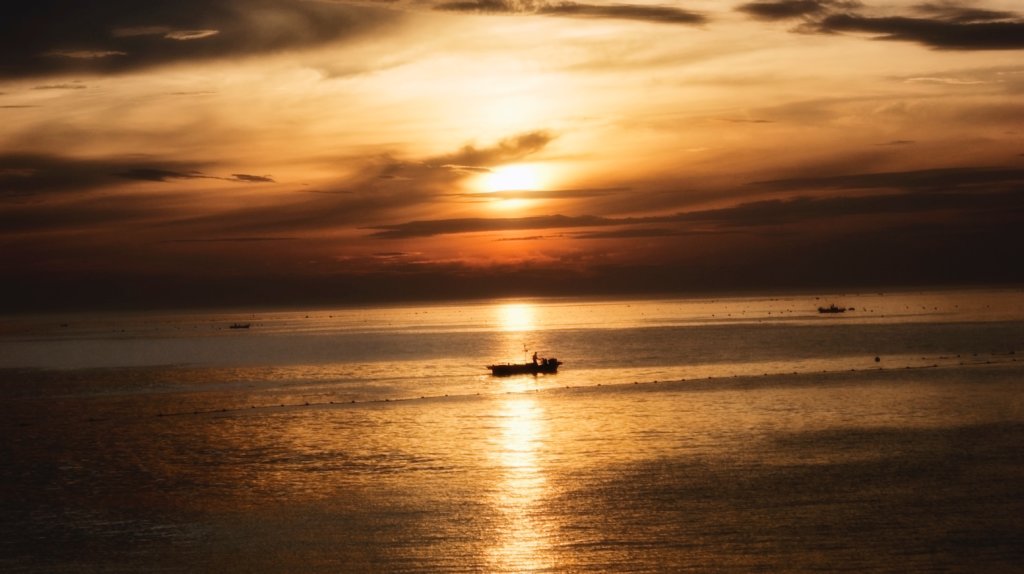
Whenever we catch something new, the Skeleton Woman is on the end of the hook. Photo by Lim changwon on Unsplash
Estés asserts for any relationship to survive and thrive, people must reckon with Lady Death, which is what the Skeleton Woman represents. They must welcome her into their home, tend to her, make peace with her in order to breathe life into something new. I think the principle applies not only to relationships, but all things. We must make peace with the fact a beginning will have an ending, followed by another beginning. I constantly forget that. When I experience an ending, some part of me still tries to hold on, as I wrote about last week.
On Saturday, I witnessed first-hand new life springing from death. I attended a grief ritual where I cried with others as they held me and I held them. I cried for someone I barely knew and I cried for things I couldn’t articulate. I bonded with people I only know in passing and felt a new closeness to them. All around me I observed a deepening of love for each other. A group of people that otherwise likely wouldn’t have met. I viewed new life springing from tragedy. Do I wish we’d met in another context? Absolutely. And at the same time, death helped create something new. The more I give into and accept the life/death/life cycle, the more serene I feel. The less scared I am of the future and what could happen because I understand death will always bring something new.
I dream of a world where we embrace the life/death/life cycle. A world where we no longer fear death as something permanent and final, but instead see it as the precursor to something new. A world where we mourn, we grieve, and we accept we’ll always have to confront death in some form or fashion. But it doesn’t have to be as scary as we are led to believe.
Another world is not only possible, it’s probable.
All week I’ve bobbed along on an ocean of grief, coming in and out of numbness. Another community member of mine died, a monk from my yoga and meditation group. He had cancer so it wasn’t altogether unexpected, but still sad. I cried when I first heard the news and then I thought I was over it. Until I noticed I checked my email, facebook, and instagram a million times trying to dodge my grief. How I wanted to escape my life and be in someone else’s. Who wants to feel grief? Grief sucks.
In texting with a friend, I realized I have resistance to grieving, not only about this monk, but other losses in my life, because if I do, that means I’ve fully let go. It’s a real and final goodbye. And in order to keep the person a presence in my life, I’ve tried to block my feelings. Like a child who says, “If I don’t say goodbye to you then you can’t leave, right?” But they have and can and do. Whether I say goodbye or not doesn’t matter. And even when I do say goodbye, even when I know a person is knocking on death’s door, it still doesn’t mean I’m ready to bid them adieu. Is anyone ever truly ready to say goodbye to someone?
When I was much younger, I remember trying to comfort my dad after someone died. I tried to console him with the notion that we’re all still connected. That just because a person has left their physical body doesn’t mean the relationship has severed. Nor does it mean we won’t reunite, especially as he and I believe in reincarnation. I’ll never forget, he countered with, “Yeah, but we’ll never meet each other again in this life.” That’s what grief is; recognizing and honoring that loss. No amount of saying, “You’ll see each other again,” can sidestep the loss.
So I’m crying in fits and spurts. I’m also contemplating what my spiritual teacher said about the dissolution of ego. How many people are scared of merging with something bigger than themselves because they view it as annihilation. To describe the process he uses the metaphor of a salt doll and the sea. He says, “If a salt doll goes to measure the sea, it will melt into it. Neither can it measure the sea, nor will it ever return; its existence will merge into the vastness of the sea, releasing it from all cares and worries. If one wishes to take the form of the sea, one will have to become the sea itself; there is no other way.”
If I wish to continue progressing in this life, I have to become the sea itself. I have to let go. To feel the feelings that I’m blocking. And in doing so, I’ll come upon something bigger than me. The salt doll becomes the ocean. Perhaps the grief I feel is carrying me toward something else, something bigger that I’m unaware of. And instead of the loss of my friends as final, maybe I’m traveling to a place altogether new. I’m not sure. Only time will tell.
I dream of a world where we allow ourselves to grieve the dead. A world where we realize the relationship changes into something new. A world where we surrender to the process we’re undertaking and allow ourselves to be swept away, letting go of the old and embracing the new.
Another world is not only possible, it’s probable.
